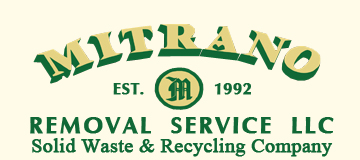 While many communities have their specific recycling dos and don’ts, there are some fairly standard tips and conventional wisdoms that, when practiced regularly, can help just about anybody be a better recycler. Here are a few of the basics:
While many communities have their specific recycling dos and don’ts, there are some fairly standard tips and conventional wisdoms that, when practiced regularly, can help just about anybody be a better recycler. Here are a few of the basics:
Don’t recycle garbage
Food scraps, dirty wrappers and napkins, paper and plastic dinnerware, and not-cleaned-out containers are NOT recyclables. While food scraps and dirty food paper products make excellent compost (along with yard waste such as clippings, raked leaves, and dead plants), the rest is trash and should be properly disposed of. If you’re throwing out dirty soup cans, peanut butter and mayonnaise jars, and other food and beverage containers, consider cleaning them out – even running them through your dishwasher when you’re doing a load – so they’re properly prepared for recycling (tip: rip off clean pizza box tops and recycle them – throw out the dirty bottoms). You’ll be surprised at how much more you’re recycling and how much less trash your household generates.
Recycle those flimsy shopping bags properly
Yes, those ubiquitous plastic shopping bags are, in fact, recyclable, but it’s HOW you recycle them that’s key. Many people mistakenly throw them in with the rest of their curbside recycling pickup, but that’s wrong. What happens is they tend to float around on the sorting conveyor belts and get stuck in the recycling machinery, jamming things up. Instead, consumers should take them back to the store which can recycle them properly. Or those plastic bags can be reused as shopping bags and for a myriad of other, creative purposes.
The same for recycling shredded paper
That’s right. Even though it’s paper, much of what people shred contains coatings, fasteners, and other things that don’t recycle. Clean, uncoated papers such as most documents, office and school papers, and other standard letter-size papers that have been shredded can be packed into paper bags and recycled.
General DON’Ts:
- Styrofoam
- Frozen food boxes
- Contaminated packaging (items covered in grease or oil, paint, etc.)
- Scrap metal
- Textiles (clothing, furniture covers, etc.)
- Non-container glass
- Hazardous household waste
- Hybrids (bubble-wrap envelopes, foil-lined food bags, etc.)
- Non-container plastics (toys, hangars, furniture, etc.)
- Hybrid packaging containing significant amounts of different materials (e.g., plastic, foil, and paper used in one package)
General Dos:
- Publications: newspapers, magazines, phonebooks, etc.
- Junk mail and office paper
- Paper towel and toilet paper tubes
- Plastic containers up to 2 gallons
- Food and beverage cartons (milk, juice, and broth boxes)
- Metal cans and aluminum foil
- Glass food and beverage containers
As we mentioned, every community may have their own set of recyclable materials, so check with your town government or recycling company. The more you know, the more you won’t “throw”. Recycling helps improve your neighborhood, community, country and our planet.
